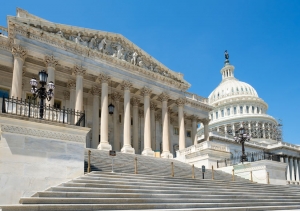Employers
The Employer Mandate regulations refer to seasonal employees and seasonal workers, and yes, there is a difference. Let’s break this down as simply as possible by starting with a few refresher points.
The midterm elections will be held on November 6, 2018, and the Affordable Care Act (ACA) will surely be a hot topic on campaign trails. Republicans are expected to continue down a path of conveying their belief that the ACA is ineffective and has driven up healthcare costs. Democrats are expected to point out consumer protections that are included in the ACA, such as coverage for pre-existing conditions and essential health benefits.
For small businesses, a great dental insurance plan makes your business more appealing to new hires — and keeps your employees smiling. In fact, 86% of small business employees say dental benefits are a must-have1.
But not all dental plans are created equal. You want a plan that provides your employees with high-quality, cost-effective coverage, easy access to updated treatments, reliable expertise and more.
How small businesses can use the power of benefits to make employees happy and improve the bottom line.
The Internal Revenue Service (IRS) has revised its frequently asked questions (FAQ) information pertaining to the Employer Mandate. More specifically, the IRS has confirmed that an employer who provides coverage through an association health plan (AHP) has no relevance to the Employer Mandate. An employer isn’t dragged into the Employer Mandate requirements simply because they provide coverage through an AHP. Only employers with 50 or more full-time equivalent employees in the prior calendar year will be subject to the Employer Mandate. Question and answer #18 from the FAQ is shown below.
In October of 2017, President Donald Trump issued an executive order which was entitled “Promoting Healthcare Choice and Competition Across the United States.” The executive order instructed regulatory agencies to focus on three initiatives:
Flexible Benefit Service LLC (Flex) offers debit cards as a reimbursement option with several different Health Reimbursement Arrangement (HRA) plan designs.
Last week, the House of Representatives (House) passed two bills which would expand Health Savings Accounts (HSAs) and make other changes to the healthcare industry. Below is a summary of key HSA provisions included:
Many of you are familiar with the reinsurance fees that were charged to health insurance plans from 2014 to 2016, but you may not be as familiar with the risk adjustment program. The risk adjustment program was authorized under the Affordable Care Act (ACA). This permanent program is intended to protect against adverse selection and risk selection in the individual and small group markets (inside and outside of the Exchanges).










